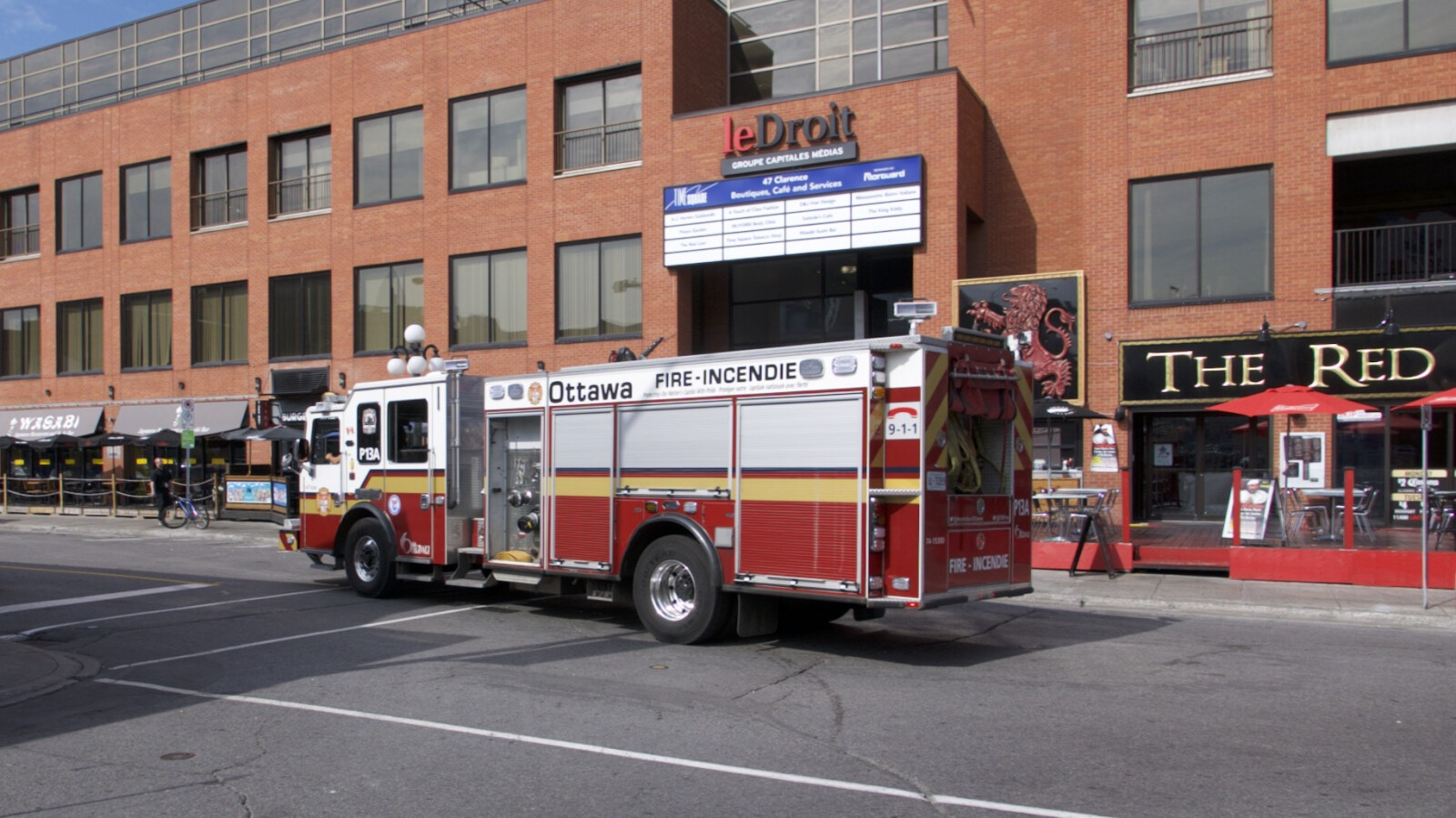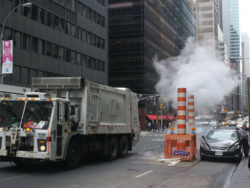Heroic First Responders Fight for Fair Compensation
First responders face hazardous conditions daily, yet acquiring fair compensation for work-related injuries is often a complex challenge. This article examines the intricacies of workers' compensation, third-party liability, and the Fireman's Rule, highlighting the critical role of accurate medical diagnoses. Through case studies and legislative analysis, we explore ongoing struggles and potential solutions for securing fair compensation for these brave individuals, underscoring the need for a more supportive system.

Key Takeaways
- First responders and frontline emergency workers, such as firefighters and EMTs, are entitled to workers' compensation benefits if injured, which helps them recover financially.
- Workers' compensation benefits vary by state and may include a percentage of wages for time off work, disability benefits, medical treatment, job retraining, and wrongful death benefits for survivors.
- Common work-related injuries for EMTs include overexertion, exposure to harmful substances, slip-and-fall accidents, vehicle accidents, and injuries from violence encountered on duty.
- Common injuries for firefighters include burns or inhalation injuries from fire, exposure injuries or illnesses from hazardous chemicals, injuries from excessive heat, and the average number of firefighter injuries per year varies.
Understanding Workers’ Compensation for First Responders
Understanding the intricacies of workers' compensation for first responders, such as firefighters and EMTs, is crucial as it provides financial recovery tools for these brave professionals who encounter hazardous work environments, including exposure to harmful substances and potential for overexertion injuries. The benefits of workers' compensation are numerous, including wage replacement, medical treatment, and potential job retraining. However, there are challenges too, such as navigating the complex claims process and potential disputes over the nature or severity of injuries. The impact of work-related injuries on the mental health of first responders is profound, causing significant psychological stress and often leading to conditions like post-traumatic stress disorder. Therefore, the importance of comprehensive workers' compensation that considers both physical and mental health cannot be underestimated.
The Reality of Work-Related Injuries Among EMTs
In the sphere of emergency medical services, EMTs face a high risk of work-related injuries, particularly from overexertion and exposure to harmful substances, and these realities underscore the importance of comprehensive workers' compensation benefits. The emotional toll of these work-related injuries on EMTs is profound, with many grappling with traumatic stress, anxiety, and depression. Further, the financial impact is significant, including lost wages, medical costs, and potential career changes. Workers' compensation benefits serve as a lifeline, providing a semblance of financial stability during these challenging times. However, the magnitude and complexity of these issues require our collective attention and empathy, along with consistent efforts towards improving the safety and wellness of our EMTs.
Common Hazards and Injuries Faced by Firefighters
Battling blazes and rescuing people from hazardous situations, firefighters often encounter physical risks such as intense heat and hazardous chemicals, leading to injuries like burns, inhalation injuries, and heat-related illnesses. These hazards are an inherent part of their vocation, underscoring the importance of preventing firefighter injuries.
Improving safety protocols is a critical step in this direction. This includes better training in handling hazardous materials, improved firefighting equipment, and enforcing stringent safety measures. Regular health check-ups to promptly identify and address any potential health issues can also go a long way in safeguarding the well-being of these brave souls. As a society, our responsibility is to ensure their safety as they put their lives on the line to protect ours.
The Intricacies of the Fireman’s Rule and Third-Party Liability
Delving into the complexities of the Fireman's Rule and third-party liability, we must recognize that, while this legal doctrine often shields property owners from lawsuits, it also opens the door for potential claims against negligent third parties. The legal implications of third-party liability can significantly impact the compensation of first responders, often limiting it under the Fireman's Rule. However, exceptions exist in cases of willful or wanton conduct, or when the danger is unreasonably increased beyond the scope of the risks inherent in the job. It is crucial to consider the balance between the rights of first responders to fair compensation and the potential burden on third parties. Ensuring this balance is maintained is a persistent challenge in the legal landscape.
The Crucial Role of Medical Diagnosis in Work-Related Injuries
A significant number of work-related injury cases underscore the crucial role of accurate medical diagnosis in securing fair and adequate workers' compensation benefits. Accurate documentation in workers' compensation claims is pivotal, not only for physical injuries, but also for mental health issues which are increasingly noted among first responders. These brave individuals often experience traumatic events, leading to conditions like post-traumatic stress disorder. Ensuring fair compensation for mental health injuries among first responders is a complex issue that demands attention. Rigorous documentation of symptoms, treatments, and impacts on work capacity is vital to substantiate claims. Thus, the role of precise medical diagnosis extends beyond merely identifying physical injuries, becoming instrumental in safeguarding the mental wellbeing of our invaluable first responders.
Navigating the Claims Process for Injured First Responders
Understanding the intricacies of the claims process for injured first responders is paramount, and thorough documentation of the injury and its impact on the worker's capacity to perform their duties can significantly influence the outcome of the claim. Navigating legal processes can be daunting, but is crucial in securing rightful compensation. First responders often face unique challenges, from exposure to hazardous materials to the risk of physical violence. Financial support options such as workers' compensation benefits can provide essential relief, but these can vary by state. It's critical for first responders and their families to be aware of these options. In cases of negligence, third-party liability lawsuits may be a possible route. Regardless, the journey towards fair compensation necessitates a comprehensive understanding of the system's complexities.
The Fight for Fair Compensation: Case Studies From the Frontlines
Why, in the context of the fight for fair compensation, do some frontline workers receive just settlements swiftly yet others struggle for years, and what insights can be gleaned from examining these contrasting case studies? The disparities often hinge on the recognition of the toll taken on mental health of first responders, which is frequently overlooked in compensation cases. Unions play a pivotal role in advocating for fair compensation, particularly in lobbying for recognition of mental health issues as legitimate and compensable. Case studies reveal a pressing need to address these gaps in the system, ensuring that all first responders - those battling visible injuries and those wrestling with unseen mental health traumas - are adequately supported and compensated for their sacrificial service.
Legislation and Advocacy: Efforts to Secure Better Compensation
In the realm of legislation and advocacy, concerted efforts are underway to secure better compensation for frontline workers, and this involves challenging existing policies and pushing for comprehensive reforms. These efforts for reform are primarily driven by advocates who recognize the disproportionate risks that these workers face daily. The impact of advocacy is seen in legislative progress, from enhancements in workers' compensation benefits to the modification of the Fireman's Rule. However, the journey is far from over. The goal is to ensure that every injury or illness, from physical harm to psychological trauma, is adequately compensated. Advocates continue to push for change, greatly motivated by empathy for frontline workers' sacrifices. This fight for fair compensation is not just about policy—it's about dignity, respect, and justice.
Looking Ahead: Future Challenges and Opportunities for Fair Compensation
As we navigate the path towards fair compensation for first responders, it's crucial to anticipate future challenges and opportunities, since the landscape of their work continues to evolve with unforeseen risks and evolving needs. Challenges in compensation reform include ensuring adequate coverage for emerging threats, such as long-term health impacts from exposure to hazardous substances. Additionally, the complexities of workers' compensation laws across different states create difficulties in establishing uniform compensation standards. However, there are also opportunities for legislative change. These include advocating for laws that acknowledge the unique risks first responders face and ensuring they receive appropriate compensation. The evolving nature of their roles and the increasing recognition of their sacrifices offer a platform to drive these changes.
Frequently Asked Questions
What Is the Process for First Responders to Apply for Workers’ Compensation Benefits?
First responders, such as firefighters and EMTs, can apply for workers' compensation benefits following a work-related injury. The process begins with an accurate medical diagnosis. Then, an application detailing the injury and its relation to the job is submitted. Compensation eligibility varies by state and job role. Application challenges may include proving the injury is work-related, navigating complex paperwork, and dealing with potential delays or denials. Legal assistance is often beneficial in these cases.
Are There Specific Mental Health Resources or Benefits Available for First Responders Through Workers’ Compensation?
Yes, many workers' compensation programs offer mental health resources for first responders, recognizing the psychological toll their work can take. These resources can include therapy and counseling services, aimed at stigma reduction and promoting mental wellness. Additionally, peer support networks are often established, providing a safe space for first responders to discuss experiences and challenges with individuals who understand their unique working conditions. Benefits vary by state, so it's crucial to review local provisions.
How Does Workers’ Compensation Cover Long-Term Health Issues That Develop Due to Exposure to Hazardous Substances?
Workers' compensation covers long-term health issues from hazardous substance exposure by providing benefits for medical treatment and disability. The compensation eligibility criteria require that the illness is directly related to job duties. This includes illnesses that develop over time due to repeated exposure. However, it's crucial for first responders to promptly report any exposure incidents and seek immediate medical attention to establish a clear link between their job and their health condition.
Are There Specific Programs or Initiatives to Help First Responders Return to Work After an Injury?
Yes, there are specific programs and initiatives designed to assist first responders in returning to work post-injury. These initiatives often include comprehensive rehabilitation programs tailored to meet the physical and psychological needs of these individuals. Return to Work initiatives can involve job retraining, modified duty programs, and mental health support. The objective is to ensure a smooth transition back into service, while prioritizing the health and wellbeing of our heroic first responders.
How Do Family Members of First Responders Access Wrongful Death Benefits in the Event of a Fatal Work-Related Accident?
Family members of first responders can access wrongful death benefits following a fatal work-related accident by filing a claim through the workers' compensation system. Death Benefit Eligibility typically extends to dependents of the deceased, including spouse, children, or other family members. Compensation Calculation Methods usually consider the deceased's salary and dependents' needs. It's essential to consult with a workers' compensation attorney to navigate the complex process effectively and ensure rightful benefits.
Conclusion
In conclusion, securing fair compensation for first responders is a complex yet vital process. Acknowledging the unique risks they face, it is imperative to navigate the intricacies of workers' compensation, third-party liability, and the Fireman's Rule. Accurate medical diagnosis is crucial in substantiating claims. Legislative advocacy and reforms are necessary to ensure justice and recognition for these heroes, highlighting the need for a future where they are adequately supported and compensated for their invaluable service.

This post has been generated by AI and was not reviewed by editors. This is Not legal advice. Please consult with an attorney.



